Margo Kelly's Blog, page 13
March 23, 2018
Teen Bookfest by the Bay 2018
I was honored to be invited back to the incredible Teen Bookfest by the Bay last month in Corpus Christi, Texas. The organizers of this event do an absolutely fabulous job of spoiling the attending authors and running an exciting event for readers. Below are a few pictures from the fun weekend in February 2018.
For more information about the annual event visit: http://www.teenbookfestbythebay.org/
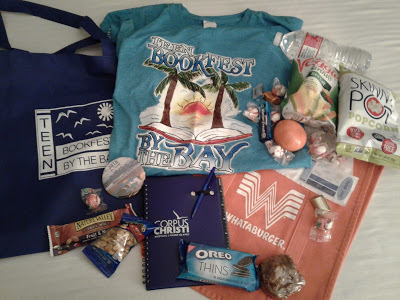
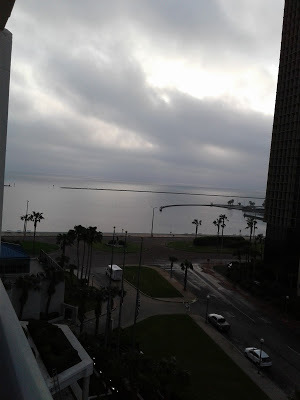
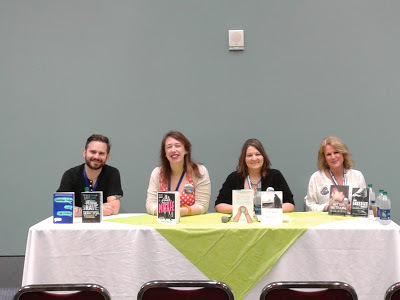
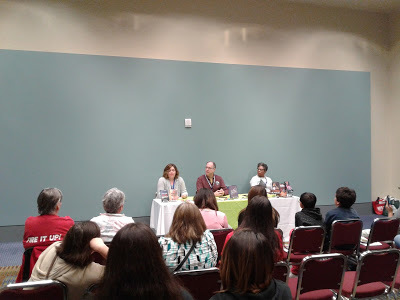
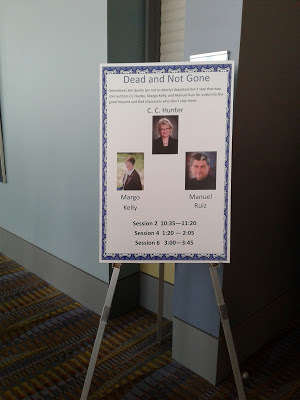
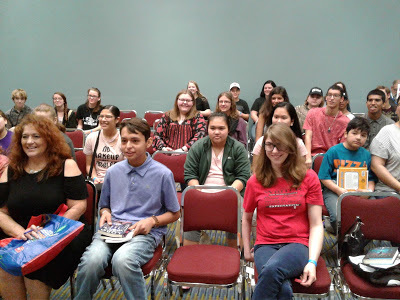
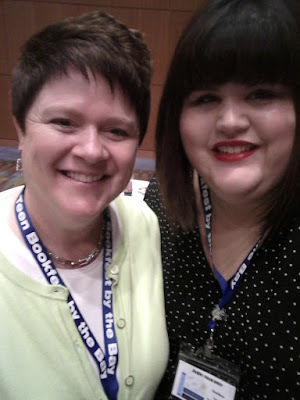
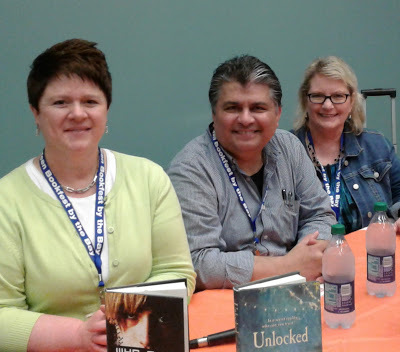

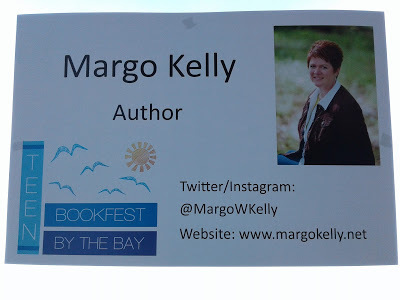
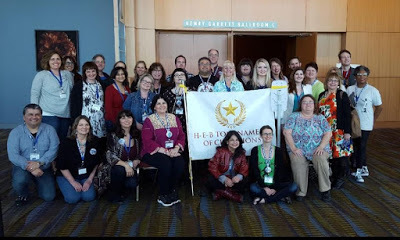
For more information about the annual event visit: http://www.teenbookfestbythebay.org/











Published on March 23, 2018 18:44
March 7, 2018
#IWSG: Celebrating Goals
The first Wednesday of the month means it's time for another installment of The Insecure Writer's Support Group! YAY for writers!
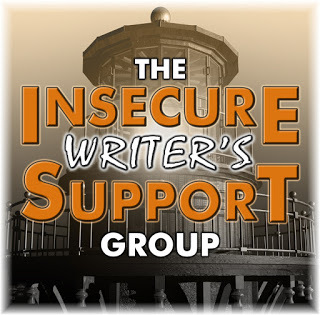 http://www.insecurewriterssupportgrou...
http://www.insecurewriterssupportgrou...
This month's question:
"How do you celebrate when you achieve a writing goal and/or finish a story?"
My answer in pictures:




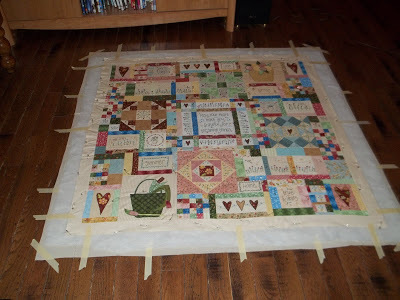

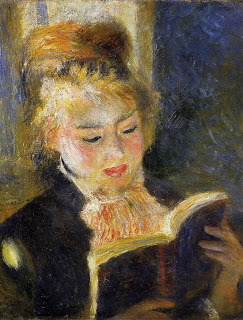
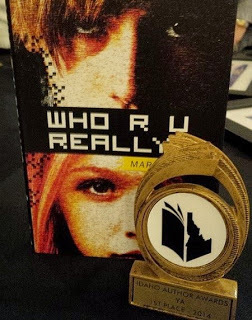

 http://www.insecurewriterssupportgrou...
http://www.insecurewriterssupportgrou...
This month's question:
"How do you celebrate when you achieve a writing goal and/or finish a story?"
My answer in pictures:









Published on March 07, 2018 01:30
February 16, 2018
School Visit - Corpus Christi
On February 16, 2018, I spoke with the spunky students of W.B. Ray High School in Corpus Christi, Texas, thanks to their wonderful librarian, Analisa Lawhon! We talked about online safety, the latest online rages, and what it's like to be an author.
I continue to be impressed with the young people around the country.
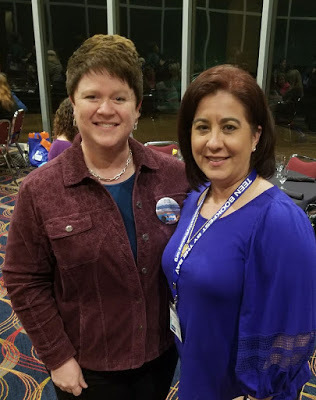
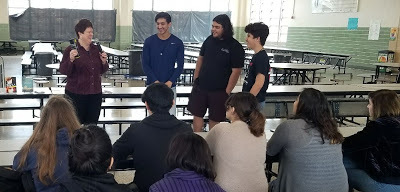
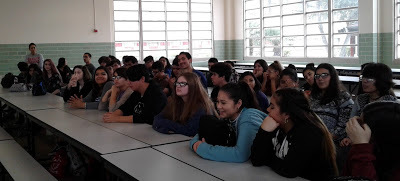
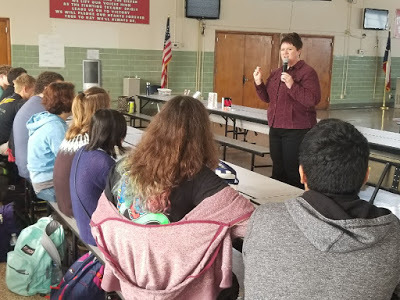

If you're interested in having me visit your school or organization, feel free to email me at margokelly1 @ outlook . com (without the spaces) for more information.
I continue to be impressed with the young people around the country.





If you're interested in having me visit your school or organization, feel free to email me at margokelly1 @ outlook . com (without the spaces) for more information.
Published on February 16, 2018 15:27
February 15, 2018
School Visit - Portland, Texas
The fabulous librarian, Michelle Costilla, invited me to spend the day with the students of Gregory-Portland Junior High School in Portland, Texas, on February 15, 2018. We had a full day of six different presentations, talking about online safety and my book, Who R U Really?. All of the students were terrific and so much fun to be around.

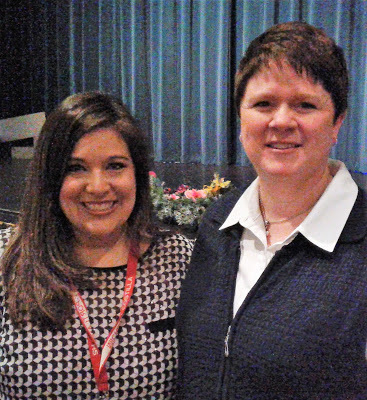
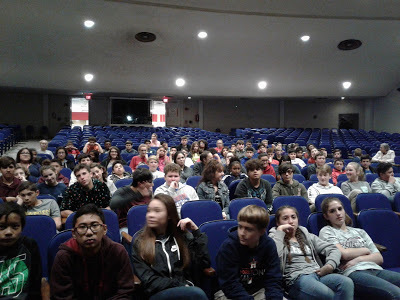
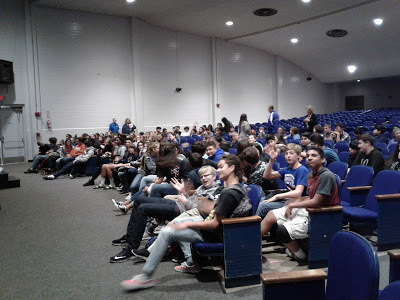

If you're interested in having me visit your school or organization, feel free to email me at margokelly1 @ outlook . com (without the spaces) for more information.





If you're interested in having me visit your school or organization, feel free to email me at margokelly1 @ outlook . com (without the spaces) for more information.
Published on February 15, 2018 15:08
February 14, 2018
School Visit - San Antonio
On February 14, 2018, I had the pleasure of visiting Sippel Elementary School in San Antonio, Texas. What a pleasure! We had a great discussion about online safety, being an author, and reading great books. I had trouble choosing only a couple of pictures - - - so scroll on down for your viewing pleasure!
If you're interested in having me visit your school or organization, feel free to email me at margokelly1 @ outlook . com (without the spaces) for more information.
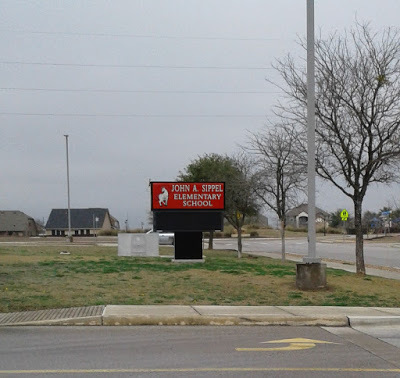
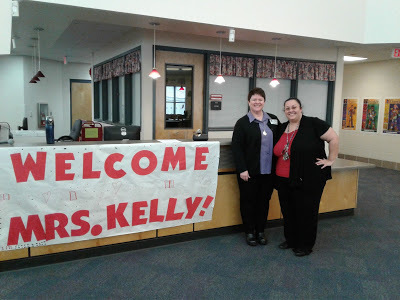
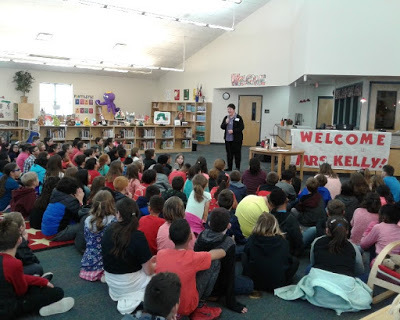
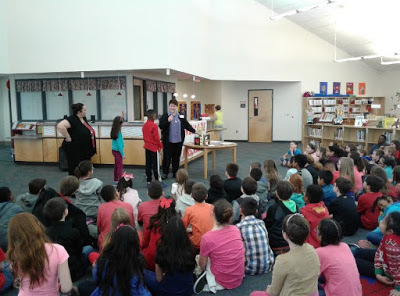
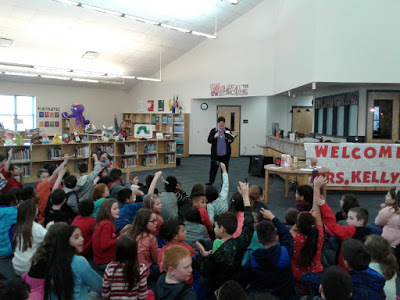
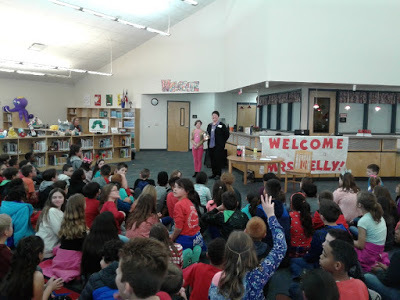
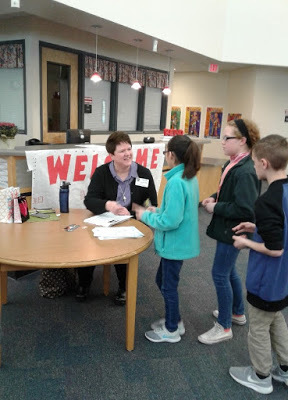
If you're interested in having me visit your school or organization, feel free to email me at margokelly1 @ outlook . com (without the spaces) for more information.







Published on February 14, 2018 11:48
Heading to Texas!
School visits, great food, book festival, terrific authors, and amazing librarians . . . it is going to be a fabulous trip to Texas. I'll post pictures on social media, so look for me on Instagram, Twitter, and Facebook. Until then, here are a few pictures to get you by:

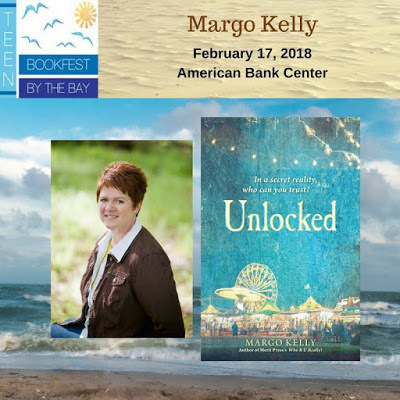




Published on February 14, 2018 07:33
February 10, 2018
Relevance of Banned Books
I was recently interviewed by a student, Donna Crane, working a "Banned Books Honors Project" for Naugatuck Valley Community College. The questions were so interesting, I thought I'd share them with you here, along with my answers:
Read on . . .
Q: Do you remember reading any books as a child that were in some way disapproved of or forbidden? If yes, did they traumatize you for life, or did the “forbidden” element make them more enjoyable?
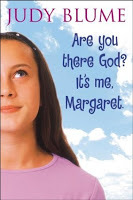 A: Reading Are You There, God? It's Me, Margaret by Judy Blume as a young girl made me feel like I was not alone. I still remember the shock on my mother’s face when she’d discovered I’d read it. She told me her friends had told her the book contained awful content that no child should read. My mom never actually read the book. I was glad I’d read it before she was told it was “bad,” because the book helped me feel okay about myself.
A: Reading Are You There, God? It's Me, Margaret by Judy Blume as a young girl made me feel like I was not alone. I still remember the shock on my mother’s face when she’d discovered I’d read it. She told me her friends had told her the book contained awful content that no child should read. My mom never actually read the book. I was glad I’d read it before she was told it was “bad,” because the book helped me feel okay about myself.
Q: Why do you think it’s important for controversial books to be physically present in libraries and schools and not just available online?
A: It’s important for controversial books to be physically present in libraries because not all young people have access to e-books and some marginalized kids may only read the books inside the walls of the library, never taking the books home with them for fear of retribution from disapproving parents, family members, or peers.
Q: Do you ever deliberately include controversial scenes when writing for YA to shock or provoke a strong response from the reader? Or do such scenes always arise naturally from the demands of the plot?
A: I write what the plot and characters demand. I do not start out with the intention of writing something controversial. I begin with the goal of writing something I feel passionately about with the hopes of sparking emotions and ideas within the reader.
Q: Have you ever felt guilty or worried about including controversial issues in a book you were writing for YA - do you censor yourself?
A: I don’t feel guilty, because I don’t cross lines that would cause shame within myself. I have worried about how certain scenes would be received by readers, but that’s one reason I utilize critique partners and beta readers. Based on their responses, I may modify a certain scene, but I will always remain true to myself and to the intents of the plot and characters.
Q: How you feel when people accuse your books of being unrealistic and ‘garbage’, and ask for them to be banned? Upset? Angry? Confused? Amused?
A: I was shocked when a reader posted a review of Unlocked on a library catalog’s site saying, “It explores the world of demonology and I put down the book wishing I had never picked it up. This book is not recommended for children or teens.” I told myself to let it go. It was only one review, but then other adult women posted similar reviews on library sites and Goodreads, “the dark demonic layers are not for me, my family or my home.” I know I shouldn’t read reviews, but I do. And the harsh ones still hurt.
Q: Films are classified by age, and young children are prevented from seeing films that are classified as a 15 or an 18. Do you think this is unreasonable censorship? If not, why shouldn’t we have a similar system for books?
A: Well, first of all, young children are not prevented from seeing the films. They can attend in the theater if they are accompanied by an adult, and they can easily rent or borrow the movie to watch it at home. Anyone can watch Netflix, and it has an entire range of content. I think we should have a rating system for books. I don’t think it would infringe on free speech to simply put a guide on the back of the book with a brief explanation for the rating. Something like: PG-13 for language and sex.
Q: What was the hardest scene to write for Unlocked and Who R U Really? — and where did you get the inspiration to finish it?
A1: The hardest scene to write for Unlocked was the bathroom scene, because I pushed my personal boundaries to the limits. That scene even scared me. I was worried sending it off to a critique partner to read, but when she emailed me back with a “Holy Sh*t! You scared the crap out of me.” I knew the scene was a keeper.
A2: The hardest scene to write for Who R U Really? was the Scrabble scene, because in real life, I’d experienced that scene as the mom, but I had to write it from the perspective of the teenage girl. It was a challenge to write authentically. My inspiration to finish it came simply from the fact that the book demanded to be written.
Q: How important do you think YA fiction is for teenagers in general, especially when this genre is often criticized for having some adult content and themes?
A: YA fiction is essential, because so many teens feel alone. I speak to a lot of groups about Who R U Really? , and every single time, a teen will come up to me afterward and privately say, “I thought this had only happened to me, and I felt so stupid for so long, but after reading this book, I know I’m not alone. I’m not stupid. I’ll be okay.”
Q: Do you think that there should be some kind of line drawn that limits what an author has a right to write about?
A: No. Absolutely not.
Q: Is banning books technically crossing the line of freedom of the press/freedom of speech? Is book banning limiting knowledge in any way, meaning that by "protecting us" you are also keeping us from learning?"
A: I believe “banning” a book only draws more attention to it. The process makes more people curious about it and want to read it. And yes, banning a book crosses the line of freedom of speech. If you don’t want to read a book, don’t read it, but it’s not necessary to ban it.
Q: What do you think are the biggest issues facing young people today? And what advice would you give them?
A: A major issue facing young people today is the sense of isolation, of feeling alone and different. If a person believes no one can possibly understand what they are going through, life is hard to cope with and suicide becomes a temptation. If a teacher or librarian or parent can hand a book to a young person that helps them understand that they in fact are not alone, that book can save his or her life. I would tell those young people who are struggling: hang on, because things will get better; cling to hope, because tomorrow may bring the joy you’ve been craving.
Read on . . .
Q: Do you remember reading any books as a child that were in some way disapproved of or forbidden? If yes, did they traumatize you for life, or did the “forbidden” element make them more enjoyable?
 A: Reading Are You There, God? It's Me, Margaret by Judy Blume as a young girl made me feel like I was not alone. I still remember the shock on my mother’s face when she’d discovered I’d read it. She told me her friends had told her the book contained awful content that no child should read. My mom never actually read the book. I was glad I’d read it before she was told it was “bad,” because the book helped me feel okay about myself.
A: Reading Are You There, God? It's Me, Margaret by Judy Blume as a young girl made me feel like I was not alone. I still remember the shock on my mother’s face when she’d discovered I’d read it. She told me her friends had told her the book contained awful content that no child should read. My mom never actually read the book. I was glad I’d read it before she was told it was “bad,” because the book helped me feel okay about myself.Q: Why do you think it’s important for controversial books to be physically present in libraries and schools and not just available online?
A: It’s important for controversial books to be physically present in libraries because not all young people have access to e-books and some marginalized kids may only read the books inside the walls of the library, never taking the books home with them for fear of retribution from disapproving parents, family members, or peers.
Q: Do you ever deliberately include controversial scenes when writing for YA to shock or provoke a strong response from the reader? Or do such scenes always arise naturally from the demands of the plot?
A: I write what the plot and characters demand. I do not start out with the intention of writing something controversial. I begin with the goal of writing something I feel passionately about with the hopes of sparking emotions and ideas within the reader.
Q: Have you ever felt guilty or worried about including controversial issues in a book you were writing for YA - do you censor yourself?
A: I don’t feel guilty, because I don’t cross lines that would cause shame within myself. I have worried about how certain scenes would be received by readers, but that’s one reason I utilize critique partners and beta readers. Based on their responses, I may modify a certain scene, but I will always remain true to myself and to the intents of the plot and characters.
Q: How you feel when people accuse your books of being unrealistic and ‘garbage’, and ask for them to be banned? Upset? Angry? Confused? Amused?
A: I was shocked when a reader posted a review of Unlocked on a library catalog’s site saying, “It explores the world of demonology and I put down the book wishing I had never picked it up. This book is not recommended for children or teens.” I told myself to let it go. It was only one review, but then other adult women posted similar reviews on library sites and Goodreads, “the dark demonic layers are not for me, my family or my home.” I know I shouldn’t read reviews, but I do. And the harsh ones still hurt.
Q: Films are classified by age, and young children are prevented from seeing films that are classified as a 15 or an 18. Do you think this is unreasonable censorship? If not, why shouldn’t we have a similar system for books?
A: Well, first of all, young children are not prevented from seeing the films. They can attend in the theater if they are accompanied by an adult, and they can easily rent or borrow the movie to watch it at home. Anyone can watch Netflix, and it has an entire range of content. I think we should have a rating system for books. I don’t think it would infringe on free speech to simply put a guide on the back of the book with a brief explanation for the rating. Something like: PG-13 for language and sex.
Q: What was the hardest scene to write for Unlocked and Who R U Really? — and where did you get the inspiration to finish it?
A1: The hardest scene to write for Unlocked was the bathroom scene, because I pushed my personal boundaries to the limits. That scene even scared me. I was worried sending it off to a critique partner to read, but when she emailed me back with a “Holy Sh*t! You scared the crap out of me.” I knew the scene was a keeper.
A2: The hardest scene to write for Who R U Really? was the Scrabble scene, because in real life, I’d experienced that scene as the mom, but I had to write it from the perspective of the teenage girl. It was a challenge to write authentically. My inspiration to finish it came simply from the fact that the book demanded to be written.
Q: How important do you think YA fiction is for teenagers in general, especially when this genre is often criticized for having some adult content and themes?
A: YA fiction is essential, because so many teens feel alone. I speak to a lot of groups about Who R U Really? , and every single time, a teen will come up to me afterward and privately say, “I thought this had only happened to me, and I felt so stupid for so long, but after reading this book, I know I’m not alone. I’m not stupid. I’ll be okay.”
Q: Do you think that there should be some kind of line drawn that limits what an author has a right to write about?
A: No. Absolutely not.
Q: Is banning books technically crossing the line of freedom of the press/freedom of speech? Is book banning limiting knowledge in any way, meaning that by "protecting us" you are also keeping us from learning?"
A: I believe “banning” a book only draws more attention to it. The process makes more people curious about it and want to read it. And yes, banning a book crosses the line of freedom of speech. If you don’t want to read a book, don’t read it, but it’s not necessary to ban it.
Q: What do you think are the biggest issues facing young people today? And what advice would you give them?
A: A major issue facing young people today is the sense of isolation, of feeling alone and different. If a person believes no one can possibly understand what they are going through, life is hard to cope with and suicide becomes a temptation. If a teacher or librarian or parent can hand a book to a young person that helps them understand that they in fact are not alone, that book can save his or her life. I would tell those young people who are struggling: hang on, because things will get better; cling to hope, because tomorrow may bring the joy you’ve been craving.
Published on February 10, 2018 16:23
February 7, 2018
#IWSG: What I Love About Writing Thrillers
It's the first Wednesday of the month, which means it's time for another installment of the Insecure Writer's Support Group. (YAY!)
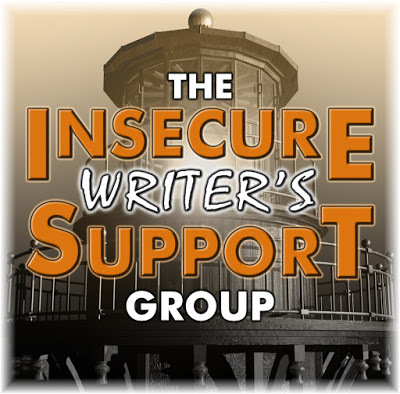 Visit for more info: http://www.insecurewriterssupportgrou...
Visit for more info: http://www.insecurewriterssupportgrou...
This month's question: "What do you love about the genre you write in most often?"
My answer: Writing is an adventure every day in the thriller & mystery genres, because from the moment I start plotting to the moment I deem a manuscript finished, I am surprised at the twists and turns my characters and plot demand. The biggest reward is when readers say they read a book of mine in one sitting. That's my ultimate goal - to make the writing, plotting, and characterizations so compelling a reader cannot set down the book. They must find out what's going to happen next!
Here are a few inspiring quotes to help:
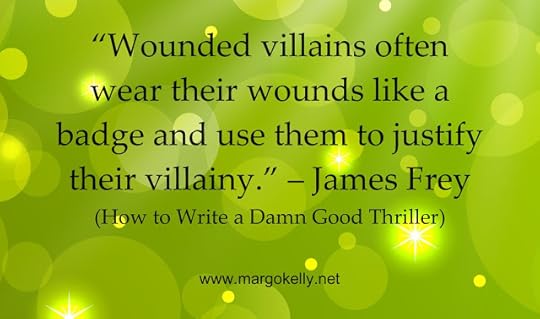

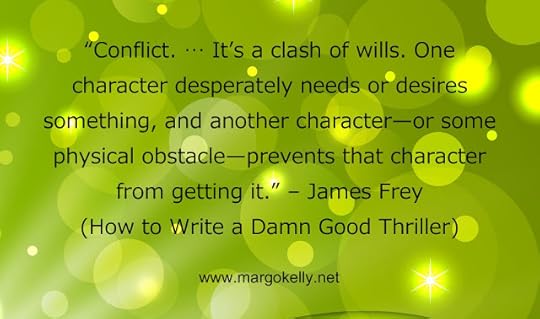
What's your favorite genre to write and/or read?
 Visit for more info: http://www.insecurewriterssupportgrou...
Visit for more info: http://www.insecurewriterssupportgrou...This month's question: "What do you love about the genre you write in most often?"
My answer: Writing is an adventure every day in the thriller & mystery genres, because from the moment I start plotting to the moment I deem a manuscript finished, I am surprised at the twists and turns my characters and plot demand. The biggest reward is when readers say they read a book of mine in one sitting. That's my ultimate goal - to make the writing, plotting, and characterizations so compelling a reader cannot set down the book. They must find out what's going to happen next!
Here are a few inspiring quotes to help:



What's your favorite genre to write and/or read?
Published on February 07, 2018 01:30
January 4, 2018
Strategies for Optimism
1. Definition of optimism: 1) a disposition or tendency to look on the more favorable side of events or conditions and to expect the most favorable outcome 2) the belief that good ultimately predominates over evil in the world 3) the belief that goodness pervades reality [dictionary.com]
2. Synonyms of optimism: assurance, buoyancy, brightness, cheerfulness, confidence, enthusiasm, hopefulness, positivity
3. Assurance is a positive declaration. We can increase our level of optimism by speaking in the positive. Rather than stating what will never happen, such as, “I will never win the lottery,” state what will happen, “I will receive ample income for the work I accomplish this year.” Assurance is a trait that benefits both the speaker and the listener.
4. Buoyancy is a force that lifts objects upward. Buoyancy in a person is considered to be a type of happiness with a light mood. Happiness is considered contagious, and when we focus our efforts on being buoyant, not only will we lift our own mood but we will also lift the moods of the people around us. Try it. A simple test is to genuinely smile at a stranger and say, “Hello.” Watch as their spirits lift because of your buoyancy.
5. Brightness is the quality of giving out or reflecting light. This is interesting, because if we’ve lost our sense of optimism and have no more to give to others, we can choose to be bright by reflecting the light around us. This why it’s essential to carefully choose the people we associate with. If we want to be more optimistic, we need to spend time with people who notice life’s many treasures and point them out with gratitude.
6. Cheerfulness is the state of being noticeably happy. A dog is noticeably happy when his tail wags. Without tails of our own, how do we exhibit a pure state of happiness? Do we dance, bounce, skip, or sing? Make a list of your tendencies, and then mimic those traits if ever you’re feeling glum. Your spirit will rise, and you’ll begin to feel more cheerful. Sounds silly, but it works. Or you could get a puppy and play with him for fifteen minutes. He’ll share his contagious cheerfulness with you.
7. Confidence is believing something will happen the way you expect. If you want to experience the joy of watching daffodils bloom in the spring, plant the bulbs in the fall. You cannot expect flowers to blossom if you only let the weeds flourish. Consciously choose what to plant around you, and then enjoy the confidence of knowing what will grow from your efforts.
8. Enthusiasm is the lively interest and eager enjoyment of an activity. What activity makes you feel the most alive? What hobbies are you eager to get back to fully? Make a list, and then write the activities and hobbies on strips of paper. Place the strips in a jar, and any time you feel pessimism creeping in, pull a strip from the jar and do the named activity. Invest yourself in the process, and allow yourself to fully enjoy it.
9. Hopefulness is the act of aspiring to success. What do you want to accomplish? What do you hope for in life? Take small steps each day in the direction of your dreams. Believe that you can accomplish your goals and break them down into bite-sized actions.
10. Positivity is the practice of finding helpful and encouraging possibilities and solutions in any given situation. Positivity is different than assurance, because positivity can be something solely for you, internal and quiet; assurance is often something spoken aloud, benefiting both you and the listener. If your air conditioner breaks, instead of negatively thinking, “I’ll never be able to afford a decent HVAC system or a nice house” . . . practice positivity and think, “The Freon probably needs to be charged. I’ll call a repairman and have it serviced.” When it comes to the positive and negative thoughts we have on a daily basis, an excellent tool is meditation, which will help us become more aware of the mindless negative phrases we repeat to ourselves. Meditation allows us the opportunity to change the way we speak to ourselves. When we stop supporting negative thoughts and actively replace them with positive ones, we mindfully choose to be optimistic instead of pessimistic, improving the quality of our day.
..........
A reminder: everything on this blog is copyrighted by Margo Kelly (unless otherwise stated). You may quote and tweet bits of this post as long as you properly attribute it and reference back to this site.
2. Synonyms of optimism: assurance, buoyancy, brightness, cheerfulness, confidence, enthusiasm, hopefulness, positivity
3. Assurance is a positive declaration. We can increase our level of optimism by speaking in the positive. Rather than stating what will never happen, such as, “I will never win the lottery,” state what will happen, “I will receive ample income for the work I accomplish this year.” Assurance is a trait that benefits both the speaker and the listener.
4. Buoyancy is a force that lifts objects upward. Buoyancy in a person is considered to be a type of happiness with a light mood. Happiness is considered contagious, and when we focus our efforts on being buoyant, not only will we lift our own mood but we will also lift the moods of the people around us. Try it. A simple test is to genuinely smile at a stranger and say, “Hello.” Watch as their spirits lift because of your buoyancy.
5. Brightness is the quality of giving out or reflecting light. This is interesting, because if we’ve lost our sense of optimism and have no more to give to others, we can choose to be bright by reflecting the light around us. This why it’s essential to carefully choose the people we associate with. If we want to be more optimistic, we need to spend time with people who notice life’s many treasures and point them out with gratitude.
6. Cheerfulness is the state of being noticeably happy. A dog is noticeably happy when his tail wags. Without tails of our own, how do we exhibit a pure state of happiness? Do we dance, bounce, skip, or sing? Make a list of your tendencies, and then mimic those traits if ever you’re feeling glum. Your spirit will rise, and you’ll begin to feel more cheerful. Sounds silly, but it works. Or you could get a puppy and play with him for fifteen minutes. He’ll share his contagious cheerfulness with you.
7. Confidence is believing something will happen the way you expect. If you want to experience the joy of watching daffodils bloom in the spring, plant the bulbs in the fall. You cannot expect flowers to blossom if you only let the weeds flourish. Consciously choose what to plant around you, and then enjoy the confidence of knowing what will grow from your efforts.
8. Enthusiasm is the lively interest and eager enjoyment of an activity. What activity makes you feel the most alive? What hobbies are you eager to get back to fully? Make a list, and then write the activities and hobbies on strips of paper. Place the strips in a jar, and any time you feel pessimism creeping in, pull a strip from the jar and do the named activity. Invest yourself in the process, and allow yourself to fully enjoy it.
9. Hopefulness is the act of aspiring to success. What do you want to accomplish? What do you hope for in life? Take small steps each day in the direction of your dreams. Believe that you can accomplish your goals and break them down into bite-sized actions.
10. Positivity is the practice of finding helpful and encouraging possibilities and solutions in any given situation. Positivity is different than assurance, because positivity can be something solely for you, internal and quiet; assurance is often something spoken aloud, benefiting both you and the listener. If your air conditioner breaks, instead of negatively thinking, “I’ll never be able to afford a decent HVAC system or a nice house” . . . practice positivity and think, “The Freon probably needs to be charged. I’ll call a repairman and have it serviced.” When it comes to the positive and negative thoughts we have on a daily basis, an excellent tool is meditation, which will help us become more aware of the mindless negative phrases we repeat to ourselves. Meditation allows us the opportunity to change the way we speak to ourselves. When we stop supporting negative thoughts and actively replace them with positive ones, we mindfully choose to be optimistic instead of pessimistic, improving the quality of our day.
..........
A reminder: everything on this blog is copyrighted by Margo Kelly (unless otherwise stated). You may quote and tweet bits of this post as long as you properly attribute it and reference back to this site.
Published on January 04, 2018 01:30
January 3, 2018
#IWSG - Writing Schedules
The first Wednesday of the month is Insecure Writer's Support Group!
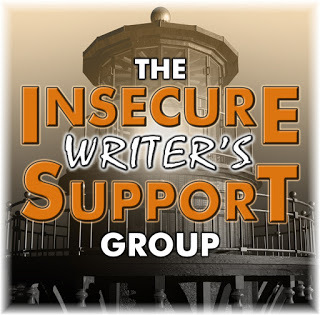
The purpose of the IWSG is "to share and encourage. Writers can express doubts and concerns without fear of appearing foolish or weak. Those who have been through the fire can offer assistance and guidance. It’s a safe haven for insecure writers of all kinds!" For more information visit the site: insecurewriterssupportgroup.com
The question of the month is: "What steps have you taken to put a schedule in place for your writing and publishing?"
Oh, boy, I'm excited to hop around to other IWSG blogs to read the answers of other writers, because this is an area I struggle with for some reason. Frankly, here's a picture to show my current state:
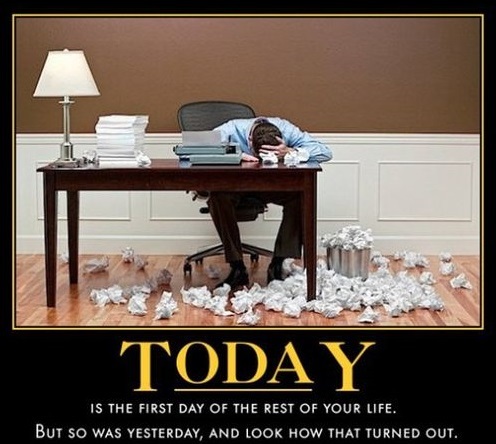
Maybe tomorrow I'll write a post about strengthening my optimism. Feel free to come back and check on me! ;) Until then, here's a link to everyone else's blog posts answering the question of the month:

The purpose of the IWSG is "to share and encourage. Writers can express doubts and concerns without fear of appearing foolish or weak. Those who have been through the fire can offer assistance and guidance. It’s a safe haven for insecure writers of all kinds!" For more information visit the site: insecurewriterssupportgroup.com
The question of the month is: "What steps have you taken to put a schedule in place for your writing and publishing?"
Oh, boy, I'm excited to hop around to other IWSG blogs to read the answers of other writers, because this is an area I struggle with for some reason. Frankly, here's a picture to show my current state:

Maybe tomorrow I'll write a post about strengthening my optimism. Feel free to come back and check on me! ;) Until then, here's a link to everyone else's blog posts answering the question of the month:
Published on January 03, 2018 01:30



